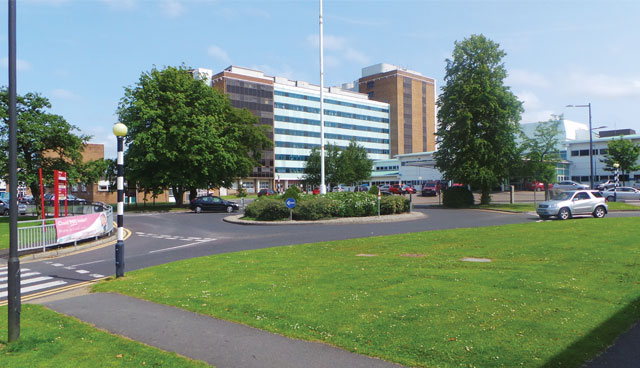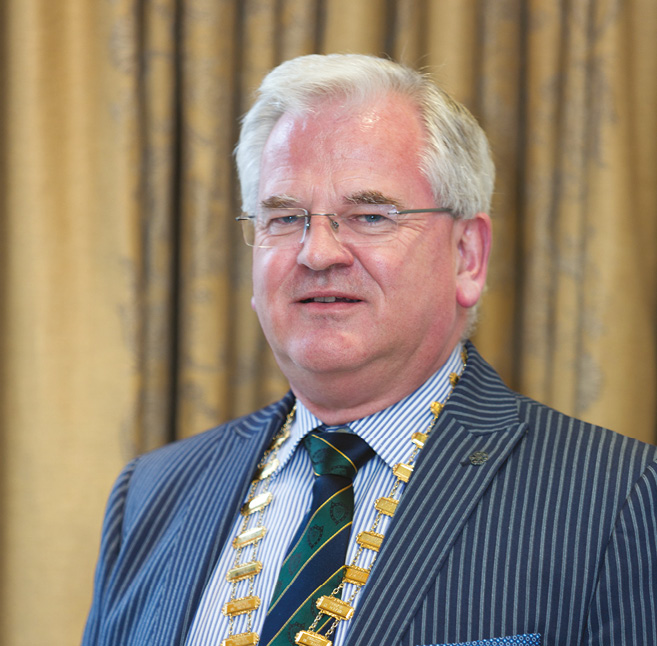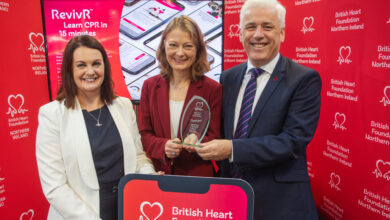Cross-border cardiology


Dr Albert McNeill, Clinician for Cardiology in the Western Health and Social Care Trust and President of the Irish Cardiac Society discusses cross-border health innovation helping to save lives in the North West.
The mortality rate of heart-attack patients across healthcare in Ireland has dramatically decreased over recent decades mainly due to improved practice and treatment methodology. However, even with the latest innovations in cardiology treatment, the time-critical element of heart-attack treatment means that geography is still a key factor in reaching the optimum patient outcomes.
In May 2016, a comprehensive cross-border service level agreement by the Western Trust and Saolta University Health Care Group paved the way for a first-of-its-kind cardiology service at Altnagelvin Hospital in Derry to treat patients from Donegal diagnosed with ST-Elevation Myocardial infarction condition (heart attack).
To date the service in Northern Ireland has treated over 80 patients from the Republic of Ireland and has the potential to provide a blue-print for further innovation in joined-up healthcare, with the overall aim of better patient outcomes.

Treatment of the most severe form of heart attack is a constant evolution. Just 40 years ago an artery clot was untreatable, instead clinicians simply treated the complications. Clot dissolving drugs helped change this, dramatically reducing the mortality rate of patients, however, there were limitations on the amount of people who were eligible to take the drugs and then on its success rate (it’s estimated that only 70 per cent of all severe heart-attack sufferers could be given clot dissolving drugs and of these a further 70 per cent successfully opened the artery).
The last 20 years has seen a move away from clot dissolving drugs towards primary Percutaneous Coronary Intervention (pPCI), involving the non-surgical widening of the coronary artery by balloon catheter and placement of a stent. Explaining the importance of having a centre of excellence in this procedure, McNeill says: “It goes without saying that patients who have suffered an extreme heart-attack have a narrow window for treatment. In order to provide this, a centre had to be 24/7 and in order for it to be plausible, it had to be a centre of high volume, allowing expertise and efficiency to be honed by staff.”
The 2012 Programme for Government recognised this need and provisioned for the roll out of pPCI across Northern Ireland. Two years later it was decided that the service would be placed in Belfast and Altnagelvin, with Altnagelvin taking from the west of Northern Ireland and Belfast from the east.
Altnagelvin currently treats around 200 severe heart attack patients per year from Northern Ireland. Explaining how the process works, McNeill says: “As soon as the paramedics arrive at a patient, they carry out an ECG and the result is emailed in here. This is read within coronary care and if necessary the team is then activated, allowing the patient to come directly here by ambulance without having to go to their own hospital and straight into the doors of our catheterisation room. Post-op, patients are transferred back to their hospital after six hours for recovery.”
Effectively setting up the service took time, as adequate staffing levels had to be met and close co-operation had to be established between medical, nursing, ambulance and managerial staff. However, once established the effectiveness of the service was recognised in its potential to help those south of the border who were geographically closer to Altnagelvin, namely in Donegal.
In 2013, a review of cardiology services in the North West by Dr Colm Henry, National Clinical Advisor for the HSE Acute Hospitals, recommended that pPCI who are within 90 minutes road time from Derry should be referred to Altnagelvin Hospita. McNeill says: “Most patients in the south are covered by the likes of Dublin, Waterford, Cork, Limerick and Galway but there is a gap because you can’t get from Donegal to Galway in the two-hour window needed for this treatment.”
There is now provision for over 50 patients a year from Donegal to be treated in Derry, before being transferred back to either Letterkenny University Hospital or Sligo University Hospital. A number of changes had to be made in order to fully integrate the service, including the appointment of an interventional cardiologist in Letterkenny on Altnagelvin’s rota and the introduction of the ECG transmission technology into southern-based ambulances.
McNeill believes that the success of the service has opened up the potential of extension: “Of course, away from the severe heart attack cases there are another group of patients who have smaller heart attacks (non-STEMI), who usually have a dye test done and their arteries fixed within 72 hours. We at the Trust would like to see this service rolled out to the Donegal population, as was recommended by Dr Henry’s report.”
In October, another joint effort between the Western Trust and the Saolta Group opened patients from Donegal access to radiotherapy services at Altnagelvin in the newly developed North West Cancer Centre.
McNeill adds: “While I can’t speak definitively for other specialities, I believe that within the Trust there would be scope for wider cross-border collaboration. Within cardiology we are looking at other areas of mutual benefit, not just one way to us here in Altnagelvin but to establish a two-way flow where patients get the right treatment in the right place.”
Wider cross-border collaboration between the two health departments is likely to be stalled until greater certainty around the outcome of Brexit and the border has been established. However, McNeill is confident any hardening of the border would not affect the current service: “The service is so successful, driven by international guidelines and evidence-based that regardless of what happens with Brexit I don’t see there being a change. The system is now entrenched in the minds of clinicians and patients who have witnessed its positive performance and better patient outcomes.
“I don’t know the final outcome but I don’t see a situation where there is going to be a queue of ambulances waiting at Burnfoot waiting to get through.”
Concluding McNeill says: “This service is a great example of what can happen when politicians engage with civil servants and clinicians and there is joined-up thinking going on across the province. I believe that our cross-border work is unique across Europe and can be a blueprint for wider engagement across jurisdictions for the benefit of patients.”





